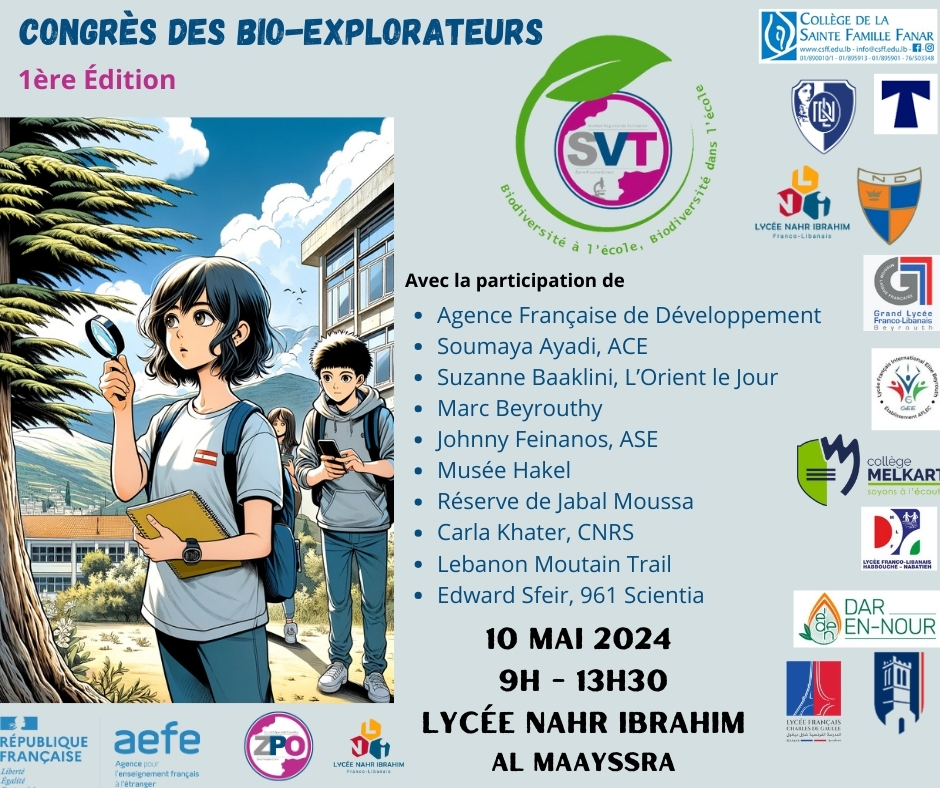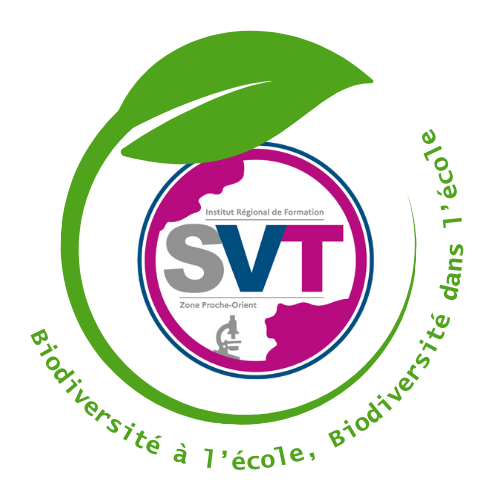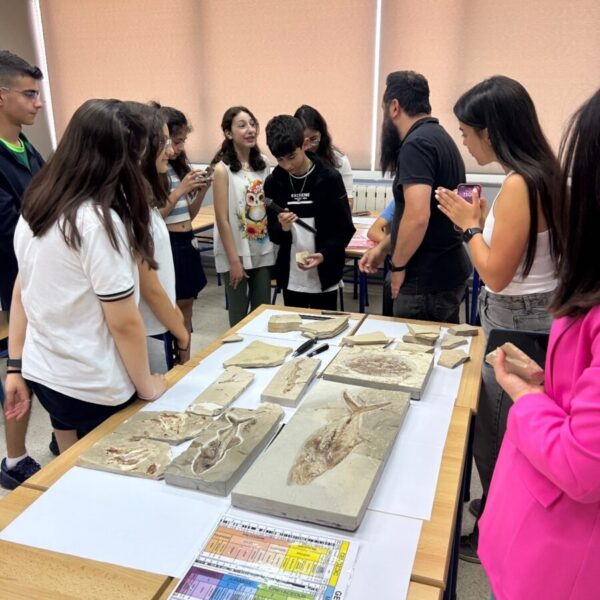The project "Biodiversity at School, Biodiversity in School" involves students from the Middle East. Through concrete actions and collaborative exchanges, these young actors learn about and preserve the richness of the nature surrounding them. This promising initiative represents an important step in the fight against biodiversity decline and climate change.
It was during the Bio-Explorers Congress that the Regional Training Institute of the French Agency for French Education Abroad (AEFE) concluded the project "Biodiversity at School, Biodiversity in School." This initiative, launched by teacher-trainers Bérénice Corlay and Cédric Pignel, aims to raise awareness among students about biodiversity conservation and to promote exchanges between schools in Lebanon and Syria.
A collaborative project...
The project "Biodiversity at School, Biodiversity in School" allowed students to carry out concrete actions within their institutions. They conducted inventories of fauna and flora, implemented measures to promote biodiversity, and created a collaborative map listing their projects. The students first explored the biodiversity of their campus. Using the SEEK app by iNaturalist, they identified the different species that made up the fauna and flora of their school. Subsequently, each institution implemented measures to encourage the presence of these species: bird feeders, ecological corridors, eco-gardens, protected areas, cultivation and consumption of indigenous medicinal plants...

« Within the activities of the biodiversity project at school, we managed to discover the different habitats present on the campus, to carry out an awareness campaign with the association Jouzour Loubnan, create QR codes for each recorded species... Actions that allowed us to see living things in a different way and to open our eyes to the beauty of our Lebanese ecosystems», confides Joseph*, a sixth grade student at 22-med. This initiative comes in a worrying context: the alarming decline of biodiversity and the changing ecosystems. These phenomena, caused by unsustainable human activities, threaten the balance of the planet and jeopardize the survival of many species, including humans.
Faced with this emergency, it is essential to act from a very young age to raise awareness among future generations about protecting the environment.
By raising awareness among young people about the richness of biodiversity and empowering them to take action to protect it, "Biodiversity at School, Biodiversity in School" helps to educate responsible citizens engaged in the ecological transition.
"Nowadays, technologies and chemical agents are at the heart of medical treatments. Unfortunately, the role of nature in the healing process is often overlooked. Thanks to the congress of bio-explorers, I discovered the effectiveness of medicinal plants in treating muscle pains, soothing external pains, remedies for hypertension, or hormonal imbalances," says Anna Fahed, a second-year student at Notre-Dame de Louaizé College, in an interview with 22-med.
A congress to share and get inspired
The congress of bio-explorers was an opportunity for students to share their experiences and discoveries with their peers. They also had the chance to participate in workshops led by scientists, researchers, NGOs, and journalists. Thus creating one of the few meeting platforms among all these actors who, although working towards the same goals, are often isolated from each other.
"The interesting exchange we had with the other institutions gave us a lot of ideas and allowed us to diversify and enrich our action plan for next year. I highly recommend to my colleagues to embark on this project and experience the adventure. Many ideas and activities will be developed throughout the school year with the students. But above all, there is a personal enrichment that you will undoubtedly enjoy experiencing," explains Hélène, a teacher who participated in the conference.
A success for the first edition
The first edition of the congress was a great success. Over 150 students from twelve schools in the Middle East participated in the event. Informing, preserving, but also supporting: young people aged 12 to 18 (or in secondary education) were able to discover new ways to protect biodiversity and committed to continuing their actions in this field.
"Despite the various economic, logistical, and educational challenges, we have managed to achieve our goals," explains Dolly Bitar, biology coordinator at Collège Notre-Dame de Louaizé. "Our 40 km² campus made it difficult to map all the present biodiversity. Our flagship project, the eco-garden, faced significant financial challenges, but thanks to the ingenuity of our young students and the support of the administration, the garden came to life. Today, several Lebanese medicinal plants as well as an insect hotel thrive in this garden entirely designed by the students with recycled waste or bio-sourced materials. This initiative has not only allowed the youth to further appreciate biodiversity but has also encouraged intergenerational collaboration, promoting the 'living and working together,' a fundamental pillar of our school project," concludes the biologist...
The project "Biodiversity at school, biodiversity in school" is an inspiring example of what involved students can achieve. It demonstrates that biodiversity conservation is an important issue that concerns all citizens, and that young people have an essential role to play in this field.

